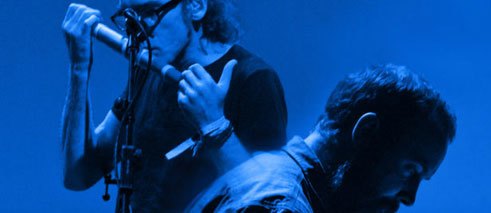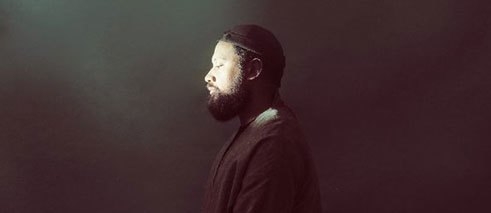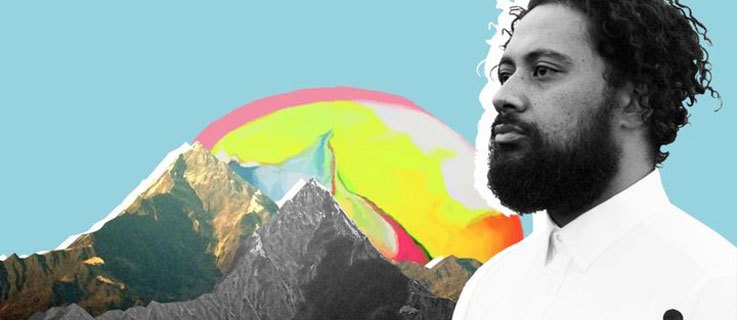In simple terms, to be an experimental musician is to experiment with sound. It’s a practice in which ingenuity and resourcefulness, qualities often referred to in New Zealand through shorthand terms like “Kiwi ingenuity,” and “Number 8 wire,” (a reference to a multi-use farming fencing wire) give you a significant advantage. When it comes to our technology, science, agriculture, and film and television industries, experimentation-based processes and idiosyncratic inventors are actively celebrated and championed within the cultural mainstream. However, experimental and electronic music makers, despite their long-standing local history and international influence, still sit on the fringes.
As a result, whether having developed their practice on their own terms, or in an academic setting, it makes perfect sense that musicians often head overseas in pursuit of opportunity. Within Europe, as with creative types from across the globe, Berlin has long been a popular destination for experimental and electronic musicians from New Zealand looking to raise the volume of discussion around their music. After all, the famed German artist visa is still reasonably easy to obtain, and rent and bills remain affordable enough to live as a working artist within the city. Most importantly though, there is a level of understanding, respect, and empathy present that these musicians are rarely afforded at home.
Olly Perryman, the Berlin-based electronic music producer and DJ known as Fis is arguably one of the highest profile experimental New Zealand musicians making noise abroad right now. Over the last three years, he’s released two solo albums, and a collaborative project with ground-breaking taonga pūoro (traditional Māori instruments) player Rob Thorne, through prestigious electronic art music labels Loopy and Subtext. For Perryman, arriving in Berlin was a creative pressure release. “For comfort as an artist, New Zealand is like training at altitude. It’s like an exercycle on the highest gear, and I’m not just talking economically. It’s a matter of openness. I cannot tell you why, but right now New Zealand does not feel that open to artwork or artists” (Fis, Norient, 2016)
 Fis & Rob Thorne performing | © Sophie Schnell
Fis & Rob Thorne performing | © Sophie Schnell
Audio: Fis & Rob Thorne, Phase Transition
Following a thread that connects the exploratory impulses of Alice Coltrane’s celestial jazz, Xenakis’ architectural compositions, and Autechre’s densely complex electronica, his music explores the relationships between human, nature, and technology. In 2015, I described it for
Dummy Mag as, “a techno-naturalistic soundworld all his own.” Since relocating to Berlin that same year, he’s performed for appreciative audiences across Europe and North America, and present commissioned works at prestigious experimental electronic music festivals like
Berlin Atonal and Mutek. Fittingly, his recordings and performances have been celebrated by crucial music media outlets such as The Wire,
Fact Magazine and
Resident Advisor.
Audio: Fis, Live at Berlin Atonal (2014)
Another musician from our shores currently turning the dial up in Berlin is Tongan New Zealand singer/songwriter and producer Tau Manukia, aka
Noah Slee. Where Perryman’s work explores the frontiers of experimental electronica, Manukia fuses heartfelt Polynesian soul with electronic dance music styles like house and techno, while also drawing on the sonic exploration tapped into by experimental rock bands like Radiohead.
Manukia got his start playing with Auckland-based Pacific pop-funk boyband
Spacifx in the mid-2000s, before rejecting the commercial music machine, heading overseas, and expanding his listening. After spending some time living in Australia, Manukia relocated to Berlin. Much like Perryman, this move gave him the geographic proximity required to perform regularly throughout Europe. In turn, this helped him link record deals with
Majestic Casual and
Wondercore Island, for the release of his well-received debut album
Otherland.
 © Noah Slee
© Noah Slee
Audio: Noah Slee, Radar
Aside from accessibility to suitable audiences and industry, relocating to Germany also gave Manukia the chance to come out as gay, something he struggled with growing up within a Christian Polynesian family and community in New Zealand and Australia. “I needed to find a community that wasn't just musical but was open to my sexuality and able to let me breathe” (Noah Slee). In Berlin, he found this community and breathing space, using it to create work that has won him support from tastemaking music platforms like
Boiler Room TV and
BBC Radio 1xtra. That said, Manukia still has a journey ahead of him. “I feel like Otherland is only the tip of the iceberg in terms of me being completely free and open” (Noah Slee).
Between their two practices, Perryman and Manukia’s works are a reminder that the meaning of the word “experimental” shifts with context and genre. Once you’re connecting with an international audience through sonic exploration - whether by pushing the boundaries within an accessible space or out on the more extreme edges of sound-making - working within an experimental paradigm can be richly rewarding. Right now, as it has been for decades, Berlin remains an ideal launchpad for New Zealand experimental and electronic musicians with emergent international profiles. A place from which to make noise abroad.
Audio: Noah Slee, Told
